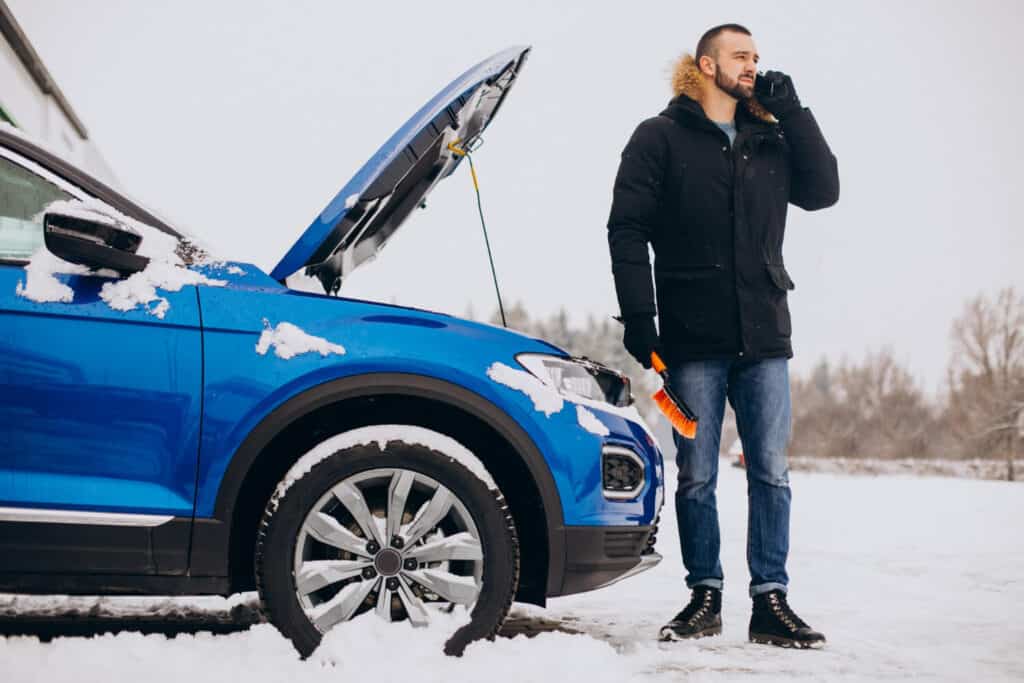As the cold winter weather sets in, many drivers may find themselves asking the question: should you warm up your car’s engine before driving? While there are arguments for and against warming up your car, the reality is that modern engines and technologies have changed the game. In this article, we’ll explore the pros and cons of warming up your car, the risks of letting your car idle for too long, how long you should warm up your car, and alternative ways to protect your engine in cold weather.

The Arguments For and Against Warming Up Your Car’s Engine
One argument for warming up your car is that it allows the engine oil to warm up and lubricate the engine’s moving parts. This can help protect the engine from wear and tear. On the other hand, some argue that idling your car for an extended period of time wastes fuel and can harm the environment.
Why You May Not Need to Warm Up Your Car in Cold Weather
Many modern engines and technologies have eliminated the need for warming up your car’s engine. In fact, most automakers recommend driving off slowly after starting your car, rather than letting it idle. This is because modern engines warm up more quickly and efficiently than older engines, meaning they can reach the ideal temperature while driving.
The Risks of Letting Your Car Idle for Too Long
Letting your car idle for an extended period of time can result in a number of risks. This includes wasting fuel, contributing to air pollution, and potentially causing damage to your engine. Excessive idling can also cause problems with your car’s spark plugs and battery.
How Long Should You Warm Up Your Car in Cold Weather?
If you do choose to warm up your car’s engine, experts recommend doing so for no more than 30 seconds. This is enough time for the oil to circulate and reach the engine’s moving parts. Beyond 30 seconds, the benefits of warming up your car’s engine are minimal.
Alternative Ways to Protect Your Engine in Cold Weather
There are alternative ways to protect your engine in cold weather, such as using a block heater or parking your car in a garage. A block heater warms up the engine’s coolant, which in turn warms up the engine more quickly. Parking your car in a garage can also help keep the engine warmer.
The Impact of Modern Engines and Technologies on Warming Up Your Car
As mentioned earlier, modern engines and technologies have changed the game when it comes to warming up your car’s engine. Many newer vehicles are equipped with advanced features such as start-stop systems, which automatically shut off the engine when the car is stopped. These systems help save fuel and reduce emissions.

Tips for Starting Your Car in Cold Weather
If you’re starting your car in cold weather, there are a few tips to keep in mind. First, make sure your battery is in good condition and fully charged. Second, use the appropriate oil viscosity for cold weather. Third, clear any snow or ice from the windows and mirrors before driving. Finally, make sure your tires are properly inflated and have good tread.
Conclusion
In conclusion, while there are arguments for and against warming up your car’s engine before driving in cold weather, the reality is that modern engines and technologies have made it largely unnecessary. If you do choose to warm up your car’s engine, limit the warm-up time to 30 seconds or less. Alternatively, consider using a block heater or parking in a garage to protect your engine in cold weather. And if you’re ever in doubt, consult your car’s owner manual or a trusted mechanic for advice.
